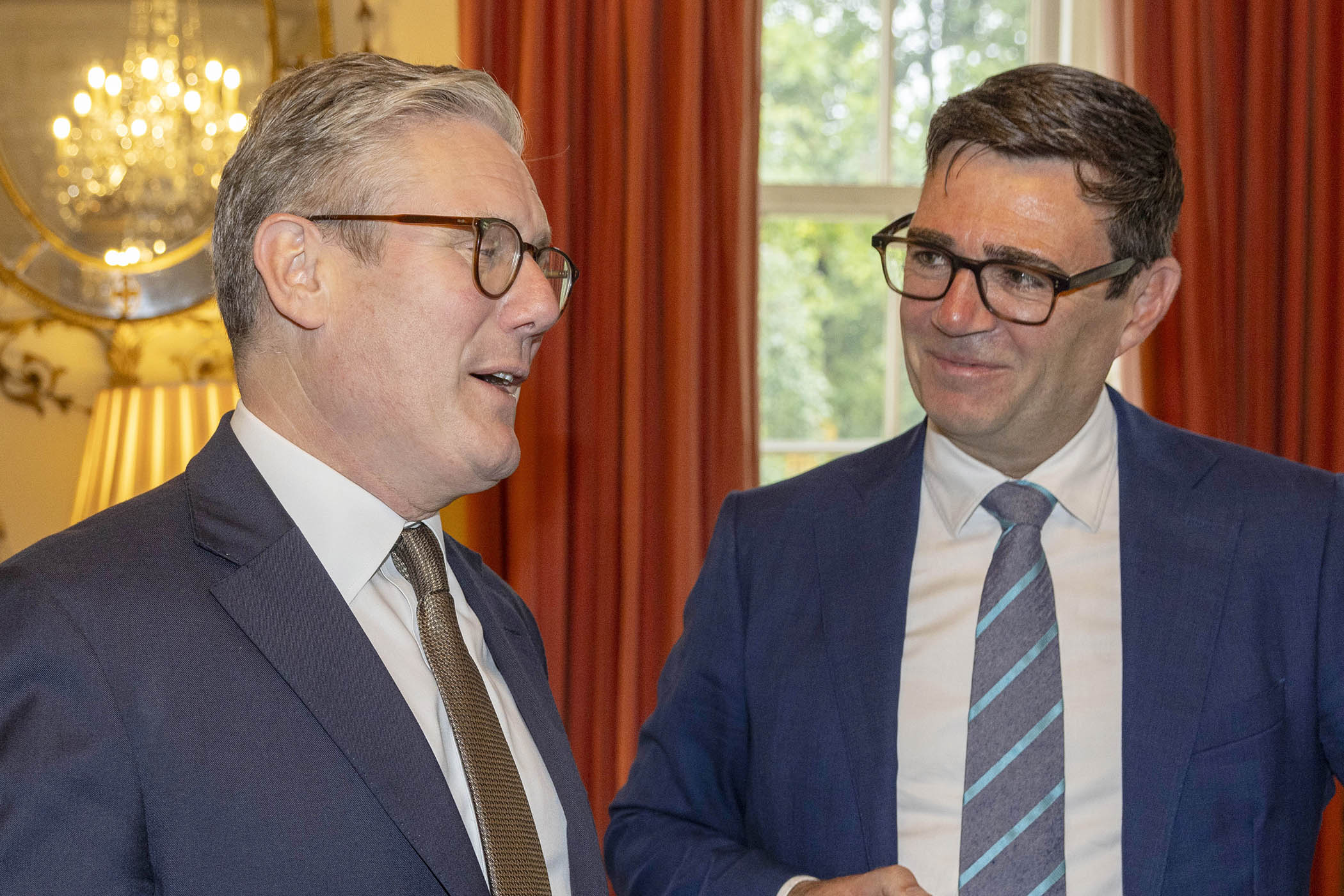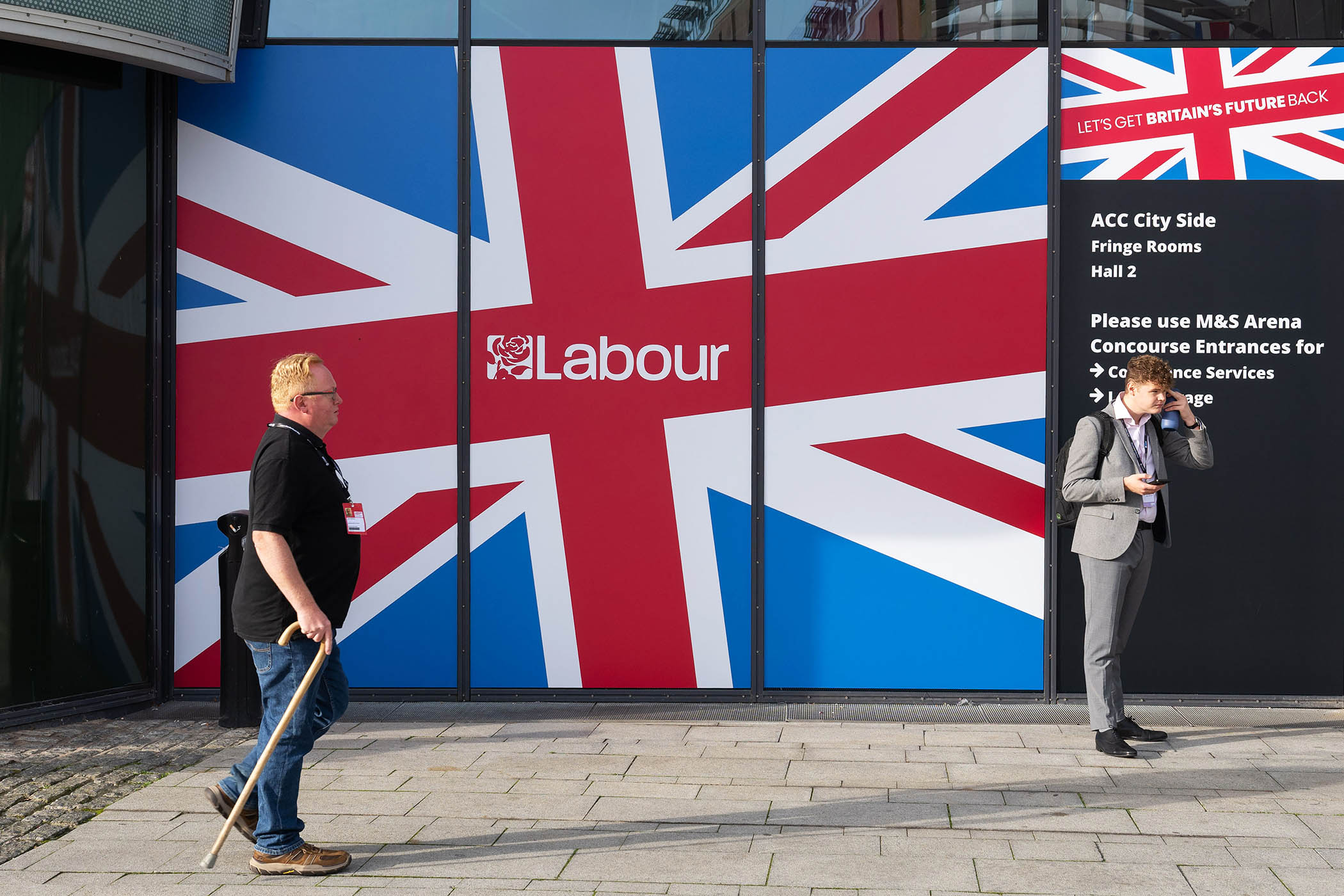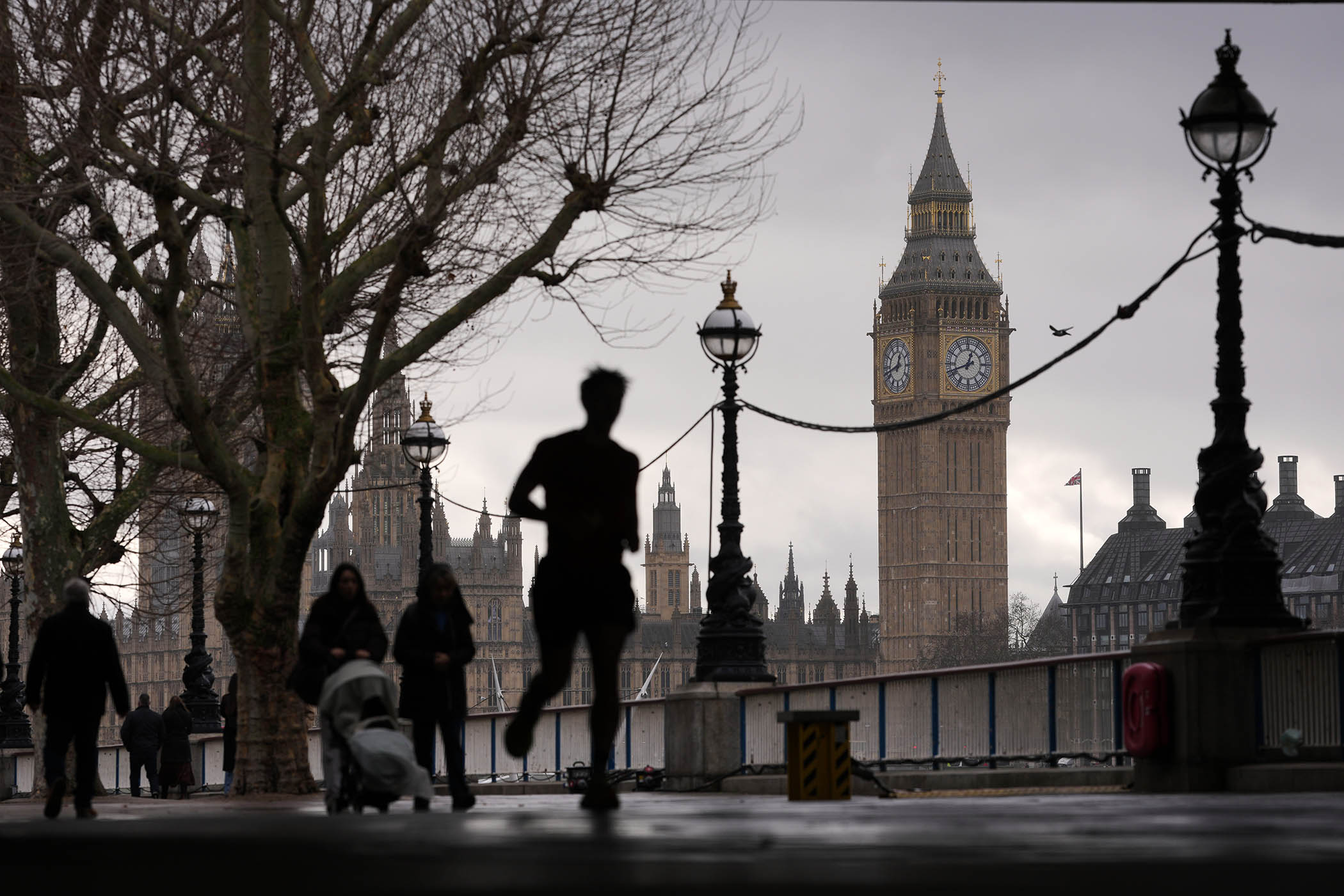Anyone who has felt a bit unsettled by the sight of all the flags recently strung up across the country won’t find much respite if they turn up at the Labour party conference in Liverpool next weekend.
The bridges, lamp posts and roundabouts being decorated in such fashion will be matched by a conference platform bedecked in the red, white and blue of the union jack, while the saltire of Scotland and the dragon of Wales, as well as England’s St George cross, will also be draped around the halls. By the time Keir Starmer finishes his big speech next week, the conference might even resemble the Last Night of the Proms.
This isn’t some effort to appease rightwing protesters nor a sign that the party organisation has been hijacked by them, because Labour long ago began to swap the socialist red flag for Britain’s national colours. But the branding chosen this year for what the left resentfully calls “flag-shagging” will perhaps receive more attention than usual because it serves both as a reminder of what’s happening beyond the security bubble and a vivid symbol of how much Labour wants to start reconnecting with some of the voters who live there.
No one doubts that the prime minister, and his government, are in trouble. The summer began with a humiliating retreat over welfare reforms, then the hyperbolised “crisis” over Nigel Farage’s favourite topic of asylum seekers, before it ended with the resignation of Angela Rayner and the sacking of Peter Mandelson as US ambassador.
It’s perhaps inevitable that Starmer, whose popularity ratings currently plumb depths unknown even to his Conservative predecessors, gets no credit for ruthlessly enforcing high ethical standards. Instead, the media focus is on the unfolding chaos of his government amid breathless speculation that, barely a year after winning a huge parliamentary majority, Starmer is running out of time.

Keir Starmer with Andy Burnham
Andy Burnham, the mayor of Greater Manchester and so-called “King of the North”, is seen by some as the “prince across the water” and a possible successor as prime minister. But such a scenario contains an awful lot of “ifs” – including one about finding a suitable seat to return to parliament – and certainly no “when”.
So, for now, Starmer has more control over his own destiny than anyone else. And that’s where all those symbols of national pride come in as he makes another effort to set out the driving purpose of his government. The slogan of the Labour conference is expected tobe “renewing Britain”, a self-consciously progressive offer for the future – what Tony Blair used to call “modernisation” – rather than the restoration of some mythical past. But what gives it some heart is the recognition Labour must also contest the territory of cultural identity.
The prime minister has more control over his own destiny than anyone else
The prime minister has more control over his own destiny than anyone else
That does not mean trying to copy Reform and the far right, as Starmer was accused of doing when, in words later retracted, he warned mass immigration risked turning Britain into an “island of strangers”. Instead, the prime minister now wants to set up a contrast between “true patriotism” – based on recognisably Labour values of fairness, extending opportunity, tolerance and respect – that seeks to unite people against those who want to stoke grievances and divide, or talk down, the country by endlessly claiming “Britain is broken”.
Over the past few days, he has given this new message a test run after violence at the flag-waving march organised by Stephen Yaxley-Lennon, otherwise known as Tommy Robinson, last weekend led to 26 police officers being injured. Initial ministerial hesitancyon how to respond ended when Starmer issued a statement saying: “Our flag represents our diverse country and we will never surrender it to those that use it as a symbol of violence, fear and division.”
Starmer understands his country better than many of his predecessors
Starmer understands his country better than many of his predecessors
Downing Street was also robust in condemning comments made by Elon Musk at the rally in which he appeared to call for the overthrow ofStarmer’s government and urged people to “fight back or die”.
The sense that this inclusive version of patriotism could be a rich seam for Labour was reinforced by Farage’s own response. He is usually smart enough to keep his distance from the most thuggish elements of the British far right and its increasingly strange allies on the other side of the Atlantic. But this week, he seemed untypically ill-at-ease talking about the march at a press conference where he sounded like a 1970s football club chairman trying to avoid sanction or a ban on his fans after some hooliganism.
Although eventually acknowledging any violence was “horrendous”, he tried to make a familiar distinction between those responsible for it and the “good, ordinary, decent” majority who just wanted to “hold a collective two fingers up to the British establishment”.
At the same time, Farage refused to be drawn on Musk, who has sometimes attacked him for not being sufficiently hardline, saying he wasn’t really sure what the “fight back or die” comments meant.
Even so, Labour still has some dilemmas on how to tackle Farage. How can you attack him as the scary face of a rightwing populism alien to our national traditions when also saying the recruitment of Conservative defectors means Reform is just a repackaged version of the Tory party? Does portraying Farage as fundamentally different risk authenticating his insurgent politics, or is it irresponsible to underplay the danger he represents to liberal democracy? Can you attack the Reform leader properly without comparing him with Donald Trump to whom, for reasons of national interest and more, Starmer insists on remaining so scrupulously polite.
Defining patriotism would be difficult enough even for a leader more able to emote in public, but Starmer has his own strengths in this regard.
In hours of interviews for my biography of him last year, I always felt he probably understands his country better than many of his predecessors – and certainly better than the country understands him. For instance, when he said recently that there was an English flag hanging up in his Downing Street flat, there was some predictable scepticism from sections of the media about this claim’s authenticity. But it makes more sense when you know he was “belting out Three Lions” at Wembley with other football fans a decade before Tommy Robinson had got his first conviction for beating up a policeman.
Starmer’s patriotism resembles that love of country most famously described by George Orwell in The Lion and the Unicorn, which disentangled it from a nationalism based on hatred for others. Arguing the left should use the “connecting thread” of patriotism to stitch together a wider coalition than any ideology would allow, Orwell bemoaned how intellectuals “would feel more ashamed of standing to attention during ‘God save the King’ than of stealing from a poor box”.Starmer showed that was no longer the case three years ago when he got his party, even its “intellectuals”, to sing the national anthem after the death of the Queen.
The prime minister’s problems have not gone away and there are plenty of reasons to believe they will get a lot worse in the months to come, not least with a faltering economy and a tax-raising budget. But there is enough in what he plans to say next week amid all those symbols of nation to suggest that he can keep his own tattered flag flying for a while yet.
Photographs by Elliott Franks/Eyevine and Ian Vogler/WPA Pool/Getty Images
Newsletters
Choose the newsletters you want to receive
View more
For information about how The Observer protects your data, read our Privacy Policy



